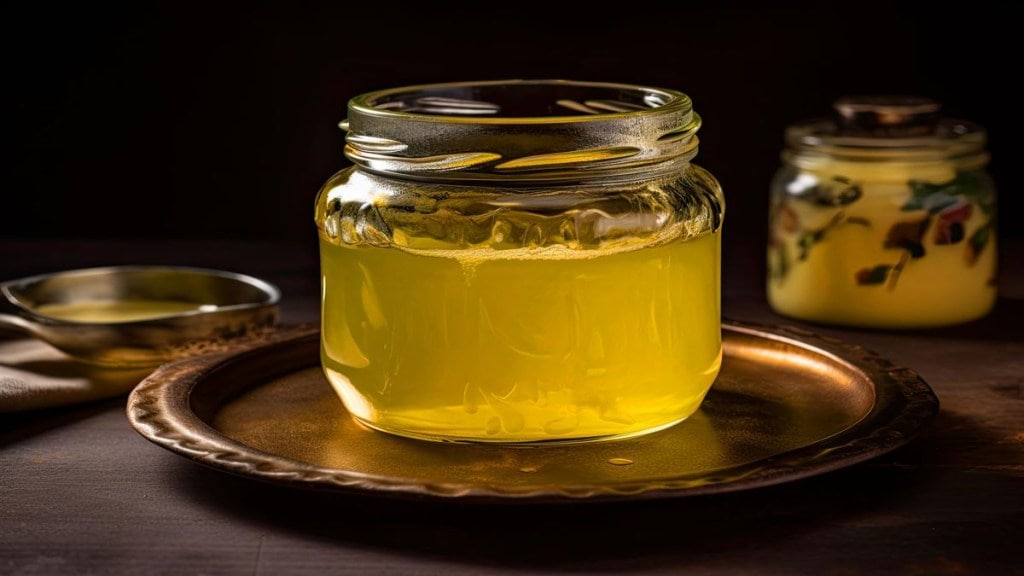Ghee, a revered component of Indian cuisine, has transcended its cultural origins to become a global culinary phenomenon. As a form of clarified butter, ghee boasts a plethora of benefits, but like any food, it comes with its own set of considerations.
As ghee is treated with low heat, usually under 100 degrees, it retains more nutrients than standard clarified butter. Ghee also plays a crucial role in herbal medication as a part of Ayurveda.
What are the benefits of ghee?
- Nutrient-Rich Profile: Ghee stands out as a nutritional powerhouse, providing a concentrated source of healthy fats. Comprising saturated fats, monounsaturated fats, and polyunsaturated fats, it forms a balanced lipid profile that contributes to various bodily functions.
- High Smoke Point: One of ghee’s culinary virtues is its high smoke point. This makes it an ideal cooking medium, maintaining its integrity at high temperatures without producing harmful by-products commonly associated with overheating oils.
- Vitamin Bounty: Ghee encapsulates fat-soluble vitamins A, E, and D, fostering the health of skin, vision, and bones. These essential vitamins play pivotal roles in supporting overall well-being.
- Gastrointestinal Harmony: Ayurveda, the ancient Indian system of medicine, hails ghee for its digestive benefits. Believed to stimulate the digestive process, ghee helps maintain a healthy gastrointestinal tract.
- Anti-Inflammatory Ally: Within the realms of ghee lies butyrate, a short-chain fatty acid renowned for its anti-inflammatory properties. Its presence in ghee may contribute to digestive health and immune system support.
- Lactose and Casein Sensitivity Solution: Ghee emerges as a boon for those with lactose or casein sensitivities. The clarification process removes these milk solids, rendering ghee suitable for individuals seeking a dairy alternative.
- Flavor Enhancement: Beyond its nutritional merits, ghee imparts a rich, nutty flavor to dishes. Its aromatic essence elevates the taste profile of various culinary creations.
What are Side Effects of Ghee?
- Saturated Fat Caution: Despite its nutritional virtues, ghee is rich in saturated fats. Excessive consumption may contribute to elevated cholesterol levels and pose risks to cardiovascular health. Moderation is pivotal.
- Caloric Intensity: Ghee’s caloric density demands cautious consumption, as overindulgence can lead to an imbalance in daily caloric intake, potentially contributing to weight gain.
- Cholesterol Concerns: The saturated fat content in ghee may elevate LDL cholesterol levels. Individuals with cholesterol-related concerns should exercise prudence in their ghee intake.
- Non-Vegan Status: Ghee, being an animal-derived product, is incompatible with vegan or plant-based diets. Individuals adhering to such dietary practices should seek alternative sources of healthy fats.
- Allergen Sensitivities: While the clarification process removes most milk solids, trace amounts may persist, posing risks for those with dairy allergies or sensitivities.
- Comprehensive Nutrition Consideration: Ghee, while nutrient-rich, is not a standalone source of essential nutrients. Its inclusion in a balanced diet is paramount for comprehensive nutrition.
Ghee’s golden allure encompasses both culinary delight and nutritional benefits. However, a nuanced approach, considering individual health factors and moderation, is essential to unlock its full potential without compromising well-being.
